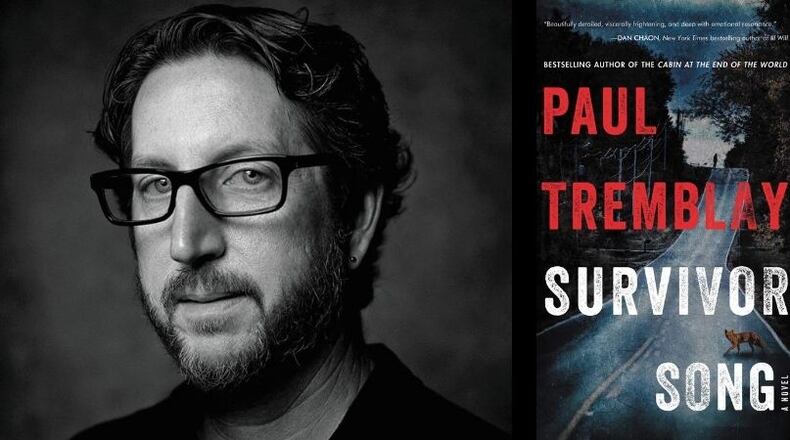As he was imagining a scenario in which his characters are dealing with the realities of a place that is being overwhelmed by the onslaught of a rampant virus he would not have dreamed that the timing for the book's release could be so scarily real.
The virus in "Survivor Song" is impacting the Massachusetts region. It is a rabies-like virus that causes people and other mammals to go crazy. It happens fast. When they become rabid they foam at the mouth. They bark. They bite and spread the virus. Humans who have gotten infected act like staggering zombies. They rapidly die.
Try to picture a world in which people are hunkered down, afraid to leave their homes, nervous about being exposed to strangers. They don't want to catch this deadly virus. Wait, this is starting to sound hauntingly familiar, right? But in this imaginary plague zone you can often tell when people and other mammals have gotten infected. They rarely act normal.
As “Survivor Song” opens, Paul and Natalie are sheltering in place.
Natalie is very pregnant. They hear footsteps: “The steps are hurried, quickly approaching the house, yet the rhythm is wrong. The rhythm is broken. There’s a grinding lunge, a lurch, two heavy steps, then a hitching correction, and a stagger, and a drag. Someone or something crashes into the propped open gate and bellows out three loud barks.”
Scary, eh? Prepare to be spirited away. I won’t ruin it. Suffice it to say that they are about to have an encounter with one of the zombie-like doomed souls who has gotten infected with the virus. The action soon shifts to the ominous landscape that lies between Natalie’s home and the hospital where she is hoping to have her baby.
Natalie is accompanied by her friend Ramola. They are attempting to navigate past a gauntlet of infected animals, rabid people, vigilantes, and two young boys on bicycles who appear like knights errant to shepherd the women through this horror zone of chaos and violence.
Tremblay clearly savors this premise. One aspect of rabies is that those who become infected can develop hydrophobia, a fear of water. In "Survivor Song" water is used to repel infected parties and it also provides a useful test to determine whether someone could be infected.
If they spurn water that's a warning signal.
Rabies has inspired tales of vampires and werewolves that have come down to us over time. These toothy creatures infect others by biting them. So you might not have to observe if your suspected vampire can see his reflection in mirrors. Just try offering it a glass of water.
ABOUT THE BOOK
“Survivor Song” by Paul Tremblay (William Morrow, 307 pages, $27.99)
Vick Mickunas of Yellow Springs interviews authors every Saturday at 7 a.m. and on Sundays at 10:30 a.m. on WYSO-FM (91.3). For more information, visit www.wyso.org/programs/book-nook. Contact him at vick@vickmickunas.com.
About the Author


